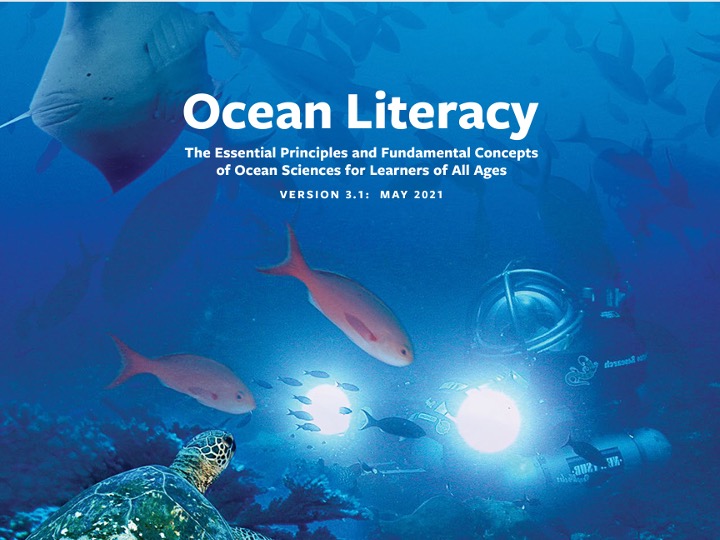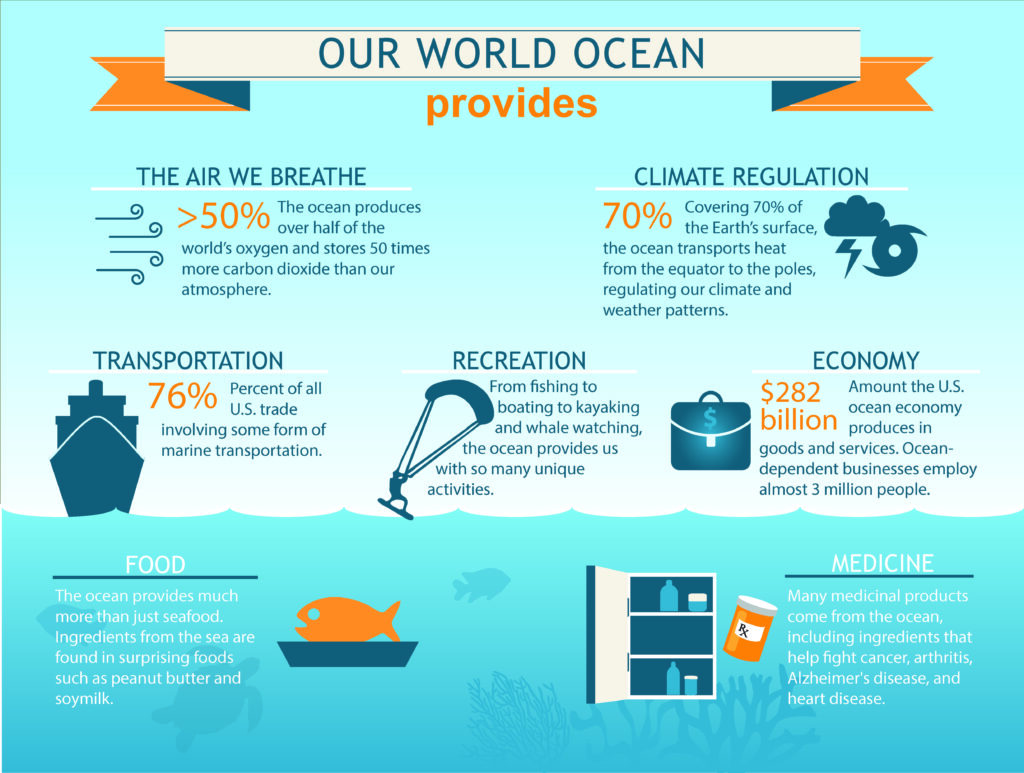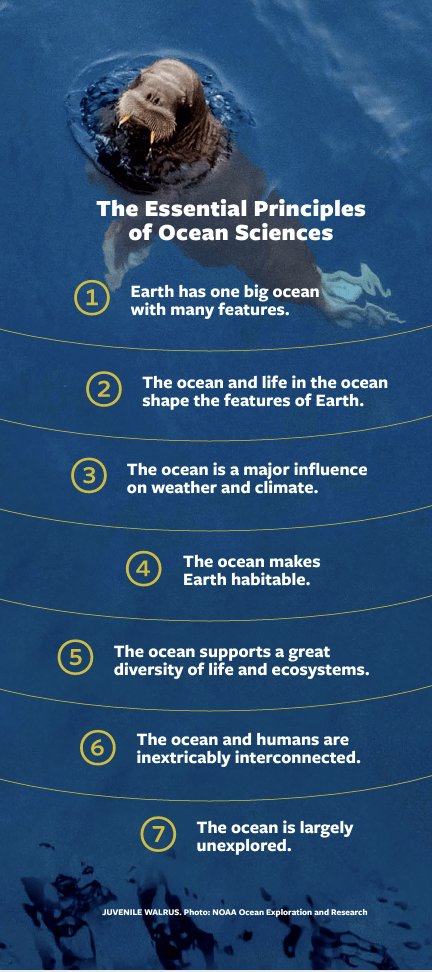
How Expedition 390 advances Ocean Literacy
To increase accessibility to our expedition, click to listen to the page text read aloud.
Ocean literacy is an understanding of the ocean’s influence on you – and your influence on the ocean. An ocean-literate person understands the essential principles and fundamental concepts about the functioning of the ocean; can communicate about the ocean in a meaningful way; and is able to make informed and responsible decisions regarding the ocean and its resources. — from NOAA’s definition of ocean literacy
No matter where you live, everyone has a connection to the ocean. The ocean plays a significant role in providing everything from the air we breathe to employment and recreation activities. This graphic from the National Oceanic and Atmospheric Administration (NOAA) is a small snapshot of why the ocean is important to humans and Planet Earth as a whole.

Not everyone can know every fact about the ocean, but there are pieces of information about the ocean and why it matters that every person should be familiar with. Learning this fundamental ocean knowledge starts in our classrooms. In 2005, over 100 scientists and educators came together to develop a framework to help educators tap into the interdisciplinary nature of ocean science. From there, seven essential principles of ocean literacy were developed for learners of all ages. Version 3.1 of the Ocean Literacy Principles was published May 2021.
Expedition 390 and ocean literacy

There are multiple ways in which our Expedition 390 research mission connects to the Essential Principles of Ocean Literacy. We will list three of them here, but a quick scan of the Ocean Literacy Principles document will show that there are many other connections to the Principles that can be made to our expedition (and a great exercise for students to complete).
(1) Earth has one big ocean with many features
This ocean principle addresses the physical features generated through plate tectonic activity, the interconnectedness of the circulation of air/water/wind/heat, the water cycle, and finite ocean resources. Expedition 390 is focusing its data collection efforts on a transect perpendicular to the Mid-Atlantic Ridge. We know that sediment is deposited on top of the basement ocean crust. And we know that there are super-heated fluids termed hydrothermal fluids that move through the crust and sediment at this divergent plate boundary. What we don’t know is how the movement of this fluid changes with the age of the sediment and crustal material, and the extent of how both are altered because of this fluid flow. We are also looking to quantify how this circulation contributes to global geochemical cycles. It is important to note that the features of our ocean can be impacted from not just what is happening above and on the seafloor, but our research will contribute to our understanding of the impact from what is underneath.
(5) The ocean supports a great diversity of life and ecosystems
Life in the ocean includes organisms that range from the largest living animal on the planet (the blue whale), to the smallest microbes. We are interested in learning more about these microbes and their diversity in the ocean. Just as we are investigating hydrothermal circulation through material of different ages, we want to explore how microbial communities vary with the composition and age of material in which they exist. Deep ocean ecosystems are specifically mentioned in this ocean literacy principle, including how diverse and unique these systems are as they extend below the seafloor.
(7) The ocean is largely unexplored
The ocean covers approximately 71% of the surface of Planet Earth, yet roughly 80% has yet to be explored. Expedition 390 is collecting samples from the South Atlantic Ocean, a region that has a limited number of core samples collected through scientific ocean drilling. Our new technologies and tools on JOIDES Resolution allow us to better collect and process the materials for our investigation.
This ocean principle states that ocean exploration is truly interdisciplinary, and Expedition 390 is representative of this interdisciplinarity not just from the range of our scientific and technological disciplines (geologists, microbiologists, computer technicians, imaging specialists, etc.) but that we come from countries across the globe. It is through our international collaborations and connections on JOIDES Resolution and with scientists on shore that we are able to be successful in advancing our ocean knowledge.
Again, this is not an exhaustive list of all the connections between the mission of Expedition 390 and the Ocean Literacy Principles, but it is a starting point for seeing how our work advances ocean literacy.
For additional information
There is a need to teach about the ocean in our schools and throughout our communities – and much we can individually learn on our own. The National Marine Educators Association (NMEA) website has prepared information to assist educators with ocean literacy instruction. On the NMEA Ocean Literacy Page, one can find not only the Ocean Literacy Guide but the Handbook for Increasing Ocean Literacy, the Ocean Literacy Scope and Sequence for Grades K-12, and the Alignment of Ocean Literacy to the Next Generation Science Standards (NGSS). The United Nations Educational, Scientific and Cultural Organization (UNESCO) has also prepared a wealth of resources on their Ocean Literacy Portal, which includes the ability to search their collection by type of material, theme, and audience.